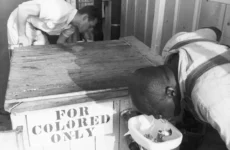Cambria taxpayers paid interest on bond debt when Town had money in bank; state audit claims
The New York State Comptroller’s office released an audit last week that concludes the Town of Cambria borrowed about $1 million for two projects when it had money sitting in bank accounts, or had already paid for the project, incurring unnecessary interest expenses and bond issuance costs.
The audit reviewed capital projects over 28 months from January 1, 2015 through May 11, 2017.
The Comptroller’s audit concluded that the Town Board did not act in compliance with New York State statutes that govern the issuance of municipal debt.
“Had they better managed the finances of these projects, the Town could have saved approximately $10,200 in issuance costs related to the bonds and approximately $19,200 in annual interest on debt,” the report stated.
Findings of the audit include:
Waterline Construction –
The Town issued a bond anticipation note [bond] for $815,000 to fund the Comstock, Suberra, Cambria waterline capital project.
The project cost $832,048, but was not actually financed with the borrowed money from the bond but by cash already on deposit in town bank accounts. The Town did not need the bond, the audit claims.
In addition, the borrowed money sat in a bank account getting little or no interest.
According to the audit, as of December 31, 2016, $794,000 remained in a Town bank account for the waterline construction. In other words, 97 percent of the money borrowed for the waterline project was not used for the project but remained on deposit in a Town bank account, while taxpayers paid interest on the unneeded debt.
The Town could have avoided bond issuance costs ($8,150) and annual interest costs ($15,077) on this unneeded debt, the audit claims.
Town Park Comfort Station
The Town spent $530,697 on a comfort station in the Town Park. The Town paid for the project with $429,973 in cash from the general fund, $80,000 in Greenway Commission funds and $20,724 of Seneca Tribal Compact money.
Yet, on February 9, 2017 the Board approved, by resolution, a bond issuance of $200,000 to provide funding for the comfort station’s construction.
Town officials held a public hearing to discuss the comfort station’s construction after $472,000 (89 percent) of the project costs had already been paid.
On March 20, 2017, the Town received $200,000 in bond proceeds, which were deposited into the Town’s general fund checking account, and not used for the construction of the comfort station.
As of May 1, 2017, the project was complete.
The comptroller concluded the Town did not need to issue a $200,000 bond to finance the restrooms. The audit states bond issuance costs were $2,000 and annual interest costs are $4,100.
Cambria Town Supervisor Wright Ellis said the $200,000 in bond debt partly reimbursed the money [$429,973 ] the town already advanced out of the general fund.
Highway Equipment
In August 2016, the Town purchased a 2017 dump truck for $201,838.
The Town paid for the truck with $105,827 of cash from the highway equipment capital projects fund, a $21,838 transfer from the highway fund and $80,000 from a bond issued in November 2016.
The bond was issued without Board approval. Yet the Bond states “This note is … issued pursuant to proceedings duly adopted by the Finance Board of the [Town], dated November 20, 2016.”
But a Board meeting was not held on that date. In fact there was no meeting approving the issuance of this bond, according to the audit. In other words, $80,000 was borrowed with no record in the public minutes.
Town officials were unable to provide an explanation as to why the Board did not adopt a bond resolution before the bond was issued, the audit stated.
Sewer Construction
The cash balance in the sewer construction capital projects fund as of December 31, 2016 was approximately $130,000. Strangely, Town officials were unsure of where the cash came from.
***
The comptroller’s audit made several recommendations, chief of which is the Board should “obtain a better understanding of municipal debt issuance and management”, “approve the issuance of debt only when it is needed” and use any remaining borrowed money sitting in bank accounts to pay off the debt.
In a Nov. 13, 2017, response letter, Town Supervisor Ellis said he “respectfully disagrees” that the town incurred “unneeded” debt.
Ellis wrote, “At no time during [waterline and comfort station] project[s] did the town possess sufficient monies on hand that were in excess of budgetary requirements for the payment of town operating expenses. Therefore, the town board determined that BAN financing and the associated borrowing costs were going to be incurred as part of that process. The board and town management did properly plan for the financing of capital projects.”
In other words, the supervisor argued, the Town advanced cash to complete projects then borrowed money [bonds] to reimburse the money advanced.
The comptroller’s auditors did not fully agree, maintaining the “water line construction project costs were financed with residual cash on deposit in the capital projects fund from prior projects and interfund transfers” and that most of the borrowed money sat in a bank account after the project was complete.
Whether that money was used later to reimburse money advance from other Town bank accounts is not clear in the audit since the last date mentioned where funds sat in the account was Dec. 31, 2016.
Cambria is located in Niagara County and has a population of approximately 5,800. The Town is governed by an elected five-member Town Board.
They are:
Wright H. Ellis, Supervisor
Joseph Ohol, Councilman
Jeffrey S. Hurtgam, Councilman
Matt Foe, Councilman
Randy M. Roberts, Councilman
Budgeted appropriations for 2017 totaled $5.1 million or approximately $900 per year for every man, woman and child.
The Office of the State Comptroller oversees the fiscal affairs of local governments statewide, as well as compliance with relevant statutes and observance of good business practices. This fiscal oversight is accomplished, in part, through our audits, which identify opportunities for improving operations and Town Board governance.
The elected comptroller is Thomas P. DiNapoli.




















